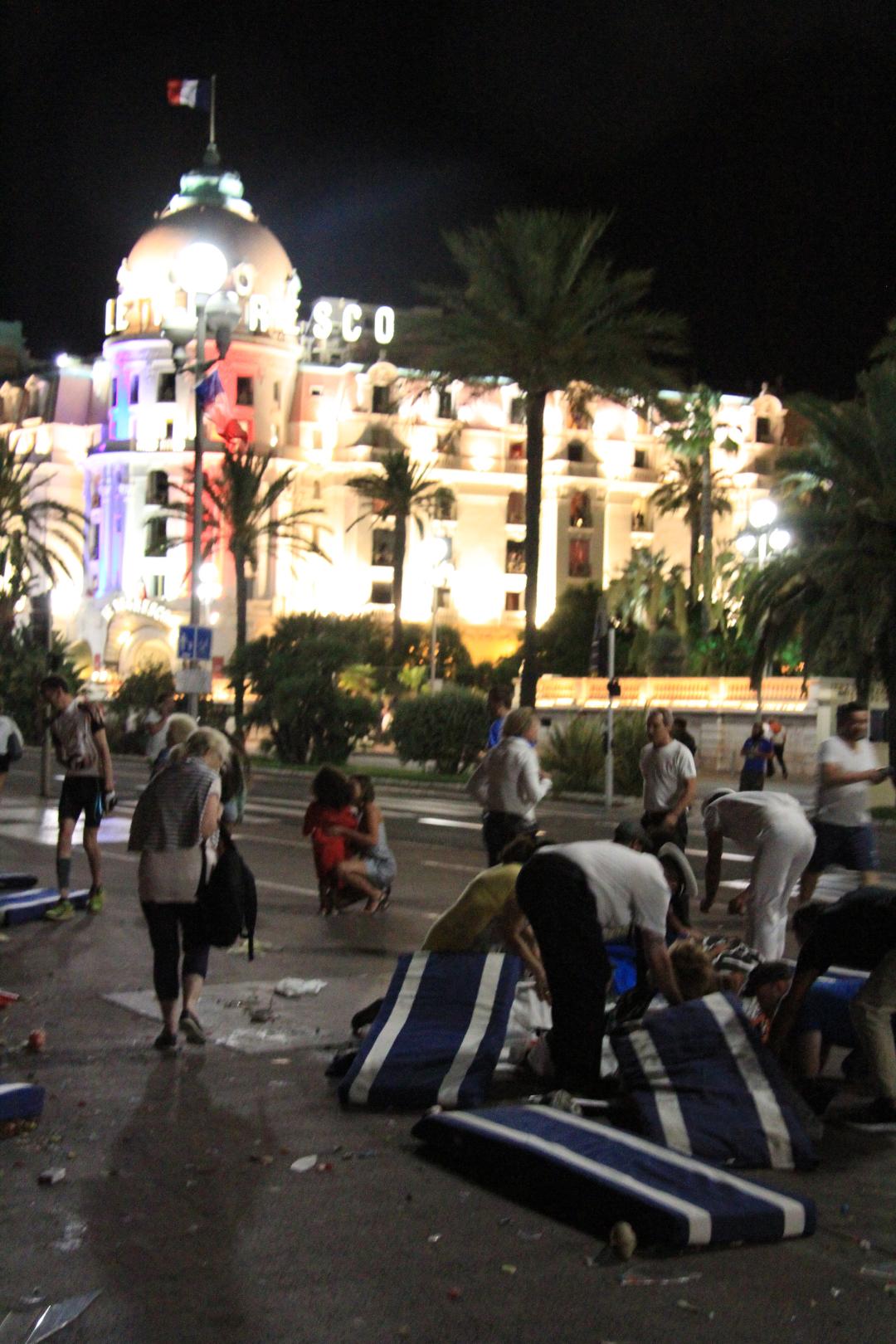The tumultuous events of the Nice attack stir an unsettling resonance within the collective consciousness of humanity, igniting fervent reflections on the Bahá’í teachings that advocate for the equal rights of all individuals. In a world marred by the arbiters of violence and intolerance, Bahá’í principles offer a mosaic of enlightenment, urging us to transcend the confines of division and embrace an inclusive vision of moral integrity.
At the heart of Bahá’í teachings lies the imperative notion of the oneness of humanity. This doctrine serves as a clarion call, beckoning individuals to relinquish prejudice and embrace an ethos of unity. The Nice attack, a stark manifestation of societal discord, underscores the urgent need for a collective response grounded in love and understanding rather than vengeance and animosity. When one segment of humanity suffers, all humanity feels the tremors of that grief. This interconnectedness compels us to pursue justice not only for the victims but also to dismantle the pervasive systems that foster hatred and violence.
In contemplating the aftermath of such tragedies, one is reminded of the allegorical tale of the ocean and its myriad drops of water, each representing an individual. Just as the integrity of the ocean relies on the harmonious amalgamation of its droplets, so too does the survival of humanity hinge upon recognizing our inherent interconnectedness. The Bahá’í teachings advocate for a world where the differences that once divided us are celebrated as facets of a grander tapestry of existence. Such perspectives elevate the discourse around human rights to one of reverence and spirituality, fostering an environment conducive to compassion and reconciliation.
Moreover, the Bahá’í text articulates the principle of equality between men and women as foundational to achieving social order. The implications of this tenet extend beyond gender; they resonate with larger themes of equity and justice that must permeate every stratum of society. In the context of the Nice attack, the absence of such fundamental rights amplifies the grievances that can lead to disenfranchisement and radicalization. When the rights of any group are marginalized, the fabric of society becomes frayed, paving the way for chaos. A robust commitment to the equality of all individuals engenders stability, countering the narratives that breed discord.
Furthermore, the teachings of Bahá’u’lláh emphasize the significance of education. The enlightenment of the masses stands as a pillar upon which the edifice of civilization can be built. Education cultivates critical thinking and empathy, equipping individuals with the tools necessary to navigate the complexities of human interaction. The detonation of violent ideologies often stems from ignorance and entrenched prejudices. Arming individuals with knowledge is tantamount to equipping them with the intellectual armor necessary to reject baseless hatred and instead champion the cause of peace. The journey toward enlightenment is one fraught with obstacles, yet it is the noblest of pursuits — one that holds the potential to avert future atrocities.
Additionally, Bahá’í teachings implore adherents to engage in acts of service and charity, reflecting the innate nobility of the human spirit. Service transforms the individual from a passive recipient of rights to an active participant in the betterment of society. It engenders a sense of responsibility toward others, extending the reach of compassion beyond merely the local community to a global audience. In the wake of the Nice attack, the imperative to serve resonates profoundly, signaling a rejection of apathy and a clarion call to action. This can take myriad forms, from volunteering to assist victims to advocating for policies that promote social equity. The act of serving is a powerful antidote to the malaise of indifference often engendered by violence.
In this paradigm of service, one is beckoned to recognize and confront the underlying causes of societal discord. Bahá’í teachings advocate for a meticulous examination of the roots of injustice, urging followers to address the ailments of society holistically. It is insufficient to merely respond to manifestations of violence; instead, attention must be directed toward transformative solutions. This proactive stance encompasses promoting dialogue across cultural boundaries, fostering understanding in lieu of suspicion, and working towards systemic reforms that enable equitable access to rights for all individuals.
As we engage with the implications of the Nice attack through the lens of Bahá’í teachings, it becomes evident that the path toward a harmonious world is imbued with trial and tribulation. However, it is also imbued with hope. The Bahá’í faith underscores that adversity is a crucible for spiritual development, inviting adherents to rise above the ashes of despair and reconstruct their communities with compassion and understanding. It is here in the crucible of suffering that the seeds of peace can take root, nourished by the unwavering commitment to justice and equality.
In summation, the call to defend the equal rights of humanity resonates with profound significance in light of the tragic events of the Nice attack. Bahá’í teachings encourage a reframing of the narrative surrounding rights and justice, propelling society toward a paradigm of empathy and unity. The task ahead may be fraught with challenges, but it is also rich with opportunity — an opportunity to sculpt a future where the injustices of yesterday are transformed into the legacies of today that articulate a more compassionate existence for all.
